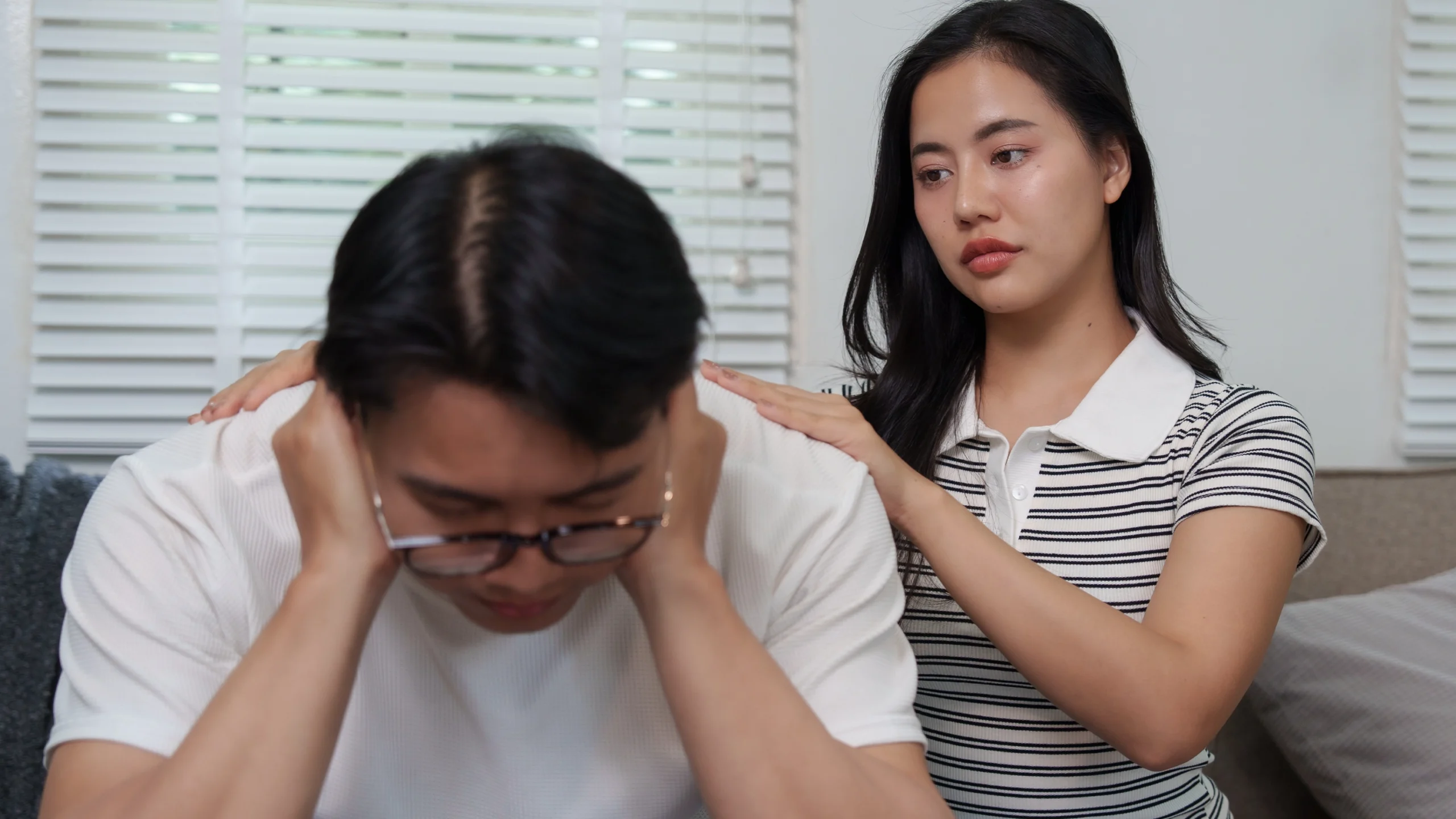World Meningitis Day 2025: A Commitment To Children’s Preventive Medicine
In coordination with the WHO, the Philippines joins the fight to end the threat of meningitis during World Meningitis Day
In 24 hours, meningitis can change a child’s life. A wicked fever that can result in either amputated limbs or permanent brain damage—the Philippines joins the WHO in its campaign to end Meningitis by 2030 and celebrates World Meningitis Day on October 5 like everyone else in the world.
As the no. 2 in the Asia Pacific for meningitis cases, the Philippines works on educating the families to help them become aware and more proactive in their preventive efforts against the fatal disease.

What makes Meningitis so deadly?
Meningitis acts quickly. The infection attacks the brain, more particularly the meninges—or the protective covering on the brain. From there, the infection spreads to the rest of the body. In some cases, it poisons or infects the blood, leading to sepsis. Once it starts circulating around the body, the attacks become more fatal.
In many cases that the former president of the Philippine Foundation of Vaccination and pediatric infectious disease specialist, Dr. Liza Gonzales, and treasurer of the Child Neurology Society Philippines (CNSP), Dr. Janette de la Calzada, have witnessed, children often suffer from seizures. Worse cases lead up to encephalitis, when the brain starts to swell. Doctors usually have to insert a shunt (a device that flows extra cerebrospinal fluid to the stomach) to prevent any further swelling and damage to the brain.
However, meningitis can come from all sorts of places. Some can find it in their toes. Others can find it in the most unusual places, like their teeth.
The Different Strains of Meningitis
Meningitis, unfortunately, has six different strains: A, B, C, W, X, and Y. While vaccines are available, it’s not always accessible. Some can only be found in private pediatric clinics, which can be quite pricy for those who are not within the area and have little means to afford.
“Currently, we have two vaccines included in the Philippines’ [National Immunization Program] that can prevent meningitis,” reveals Dr. Liza Gonzales. “One is the pneumococcal vaccine and the other is the Haemophilus influenzae type B.”
The Aftermath of Meningitis
Those afflicted with meningitis are not always so lucky as to return unscarred. As a life-threatening disease, it’s not something usual. Many parents who’ve survived the ordeal often worry about their children who have to carry those battle scars for the rest of their lives. But there is hope, shares Dr. Janette.
“Instead of trying to restore to 100%, it’s better to maximize their [the child’s] potential,” Dr. Janette explains. “Meningitis can leave a lot of life-changing damage that can be difficult to manage expectations down the road.”
But it doesn’t just affect children. Even the elderly who have co-existing diseases find themselves vulnerable to it. Some find themselves maintaining all their limbs but suffer permanent brain damage. Others are vice vice-versa. Many of those who suffer from brain damage are often aware that “something’s wrong,” leading them to severe episodes of depression.
“It can be very devastating for them,” Dr. Janette shares. “They’ll know that something’s wrong, especially when they forget things, can’t control themselves, or even struggle to string events or sentences together. The painful part is, the damage from the meningitis prevents them from identifying why they’re like that in the first place.”

How Families Can Care For Those Hurt By Meningitis
Caretakers, most likely family, will find themselves at their wits’ end trying to care for their loved ones damaged by meningitis. Especially since it’s highly frowned upon in Filipino culture to seek help in a care facility, Dr. Janette insists that it shouldn’t be the case.
“These care facilities are more equipped than many of us to handle the aftermath of meningitis,” she explains. “Round-the-clock care from nurses and caregivers and therapists knowledgeable in treating the symptoms—trusting them to do so is not an act of abandonment. It’s an act of love.”
Others, often the adult kids who do not have families or live closest to the parents, assume the role of the caretaker when the elderly survive meningitis. The grief is real; their childhood memories of loving parents contradict the angry or depressed ones they see before them.
“It’s nobody’s fault,” Dr. Janette assures. “Meningitis can strike anyone. As a life-changing disease, the best thing we can do when they do survive is accept that it’s there. Because the only thing we can do now is find the help they need.”
For the parents whose kids have survived meningitis, there’s a call for active compassion and acceptance. Depending on the damage left behind, the kids will need their help more than ever. Kids with missing limbs may need special accommodations in school, such as being excluded from school activities or a companion to help them bring their things around. Those who suffer from lifelong brain damage can find help in the form of occupational and speech therapists, along with some remedial classes after school.
But both Drs. Liza Gonzales and Janette dela Calzada insist that being preventive is best. If we have the time, get the vaccine. There’s no age limit; just availability. As the world pushes and holds World Meningitis Day, please remember that spending on a vaccine is a lot cheaper and less stressful than fighting an uphill battle to save our loved ones from the disease.
Frequently Asked Questions (FAQs)
Meningitis is an infection that inflames the meninges — the protective lining around the brain and spinal cord. What makes it frightening is how fast it attacks. Within 24 hours, a child who seemed fine could end up fighting for their life. In severe cases, it can lead to sepsis, brain swelling, or the loss of limbs. As pediatric infectious disease specialist Dr. Liza Gonzales explains, “The infection spreads quickly, and when the brain or blood is affected, every minute counts.”
Meningitis can come from several sources — bacteria, viruses, or even fungi. It’s commonly spread through cough, sneezing, or direct contact with saliva. But surprisingly, it doesn’t always start in the brain; infections from the teeth, ears, or even toes can spread and trigger meningitis if left untreated. That’s why early medical attention for any persistent infection or fever is crucial.
Yes — but availability varies. According to Dr. Gonzales, “Currently, there are two vaccines in the Philippines that help prevent meningitis — the pneumococcal vaccine and the Haemophilus influenzae type B (Hib) vaccine.”
These are part of the national immunization program and available at health centers and pediatric clinics, though some additional meningococcal vaccines (for strains A, B, C, W, X, and Y) are usually found in private hospitals. While they can be costly, vaccination remains the most effective way to prevent meningitis.
Survivors can often face long-term challenges like seizures, hearing loss, learning difficulties, or physical disabilities. Dr. Janette de la Calzada, treasurer of the Child Neurology Society Philippines (CNSP), shares: “Instead of trying to restore to 100%, it’s better to maximize a child’s potential.” With occupational or speech therapy, children can regain confidence and independence — but it requires patience, acceptance, and strong family support.
Caring for a survivor can be emotionally and physically draining. Many Filipino families hesitate to seek professional caregiving help, but Dr. de la Calzada stresses, “Trusting care facilities or trained caregivers isn’t abandonment — it’s an act of love.”
Parents and adult children can also find guidance through rehabilitation programs, counseling, and therapy centers that specialize in neurological recovery. Emotional support is just as vital as medical care — both for the patient and the caregivers.
Meningitis symptoms can appear suddenly. If your child shows a combination of these signs, seek medical help immediately:
High fever
Severe headache
Stiff neck
Sensitivity to light
Vomiting or confusion
Seizures
In infants, symptoms can be subtle—constant crying, refusal to feed, or a bulging soft spot on the head.
More about diseases?
Respiratory Syncytial Virus (RSV): Not Your Typical Flu
The Truth About Diabetes
Understanding Whooping Cough: What Parents Can Do When Their Kids Get It









